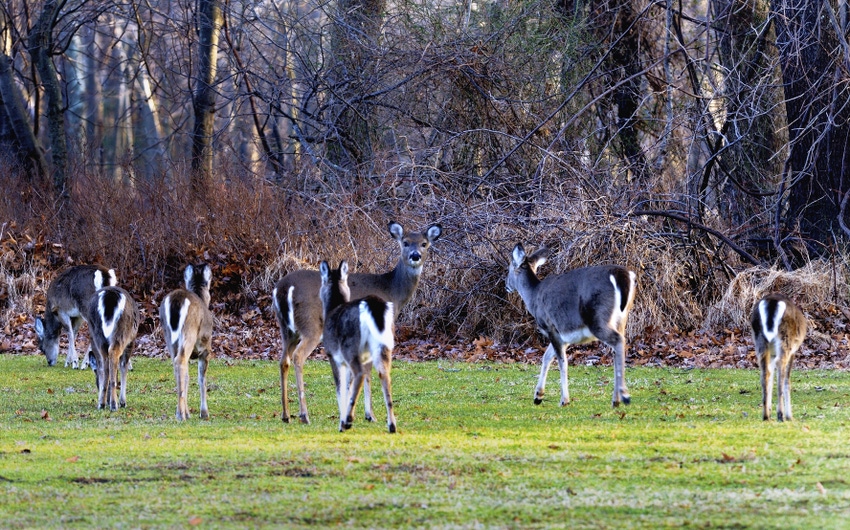Michigan sets 'potential high-risk areas' around TB-positive deer
After free-ranging deer tests positive for bovine TB, cattle and bison herds in risk area need to be tested.

On April 12, the Michigan Department of Agriculture & Rural Development (MDARD) designated parts of Iosco and Ogemaw counties in the state as a “potential high-risk area” for bovine tuberculosis (TB), according to an April 15 announcement.
These counties are adjacent to but not included in Michigan's modified accredited zone for bovine TB in the Lower Peninsula.
MDARD said the designation is a result of a free-ranging white-tailed deer in Alcona County, Mich., testing positive for bovine TB, as confirmed by the Michigan Department of Natural Resources. Anytime a positive deer is identified, all cattle and bison herds located within a 15-mile radius of the deer must be tested for bovine TB within six months, the agency said. This designation testing excludes counties where annual testing already occurs, like Alcona County.
According to MDARD, herd owners in the affected township sections of these two counties are being contacted to schedule testing. Additionally, an informational meeting to discuss testing and the potential high-risk area designation will be held May 2 in Lupton, Mich.
MDARD said cattle and bison herds are tested to ensure that the disease has not spread from local deer to cattle or bison; this not only protects Michigan’s cattle industry but also helps reassure Michigan’s trading partners that all necessary steps are being taken to protect the health of the herds.
Additional information on bovine TB in Michigan livestock and wildlife can be found on the MDARD Emerging Diseases website.
About the Author(s)
You May Also Like



